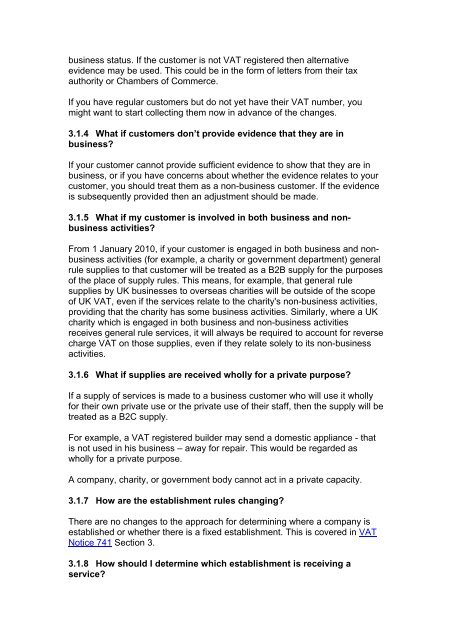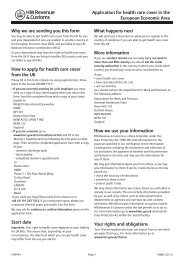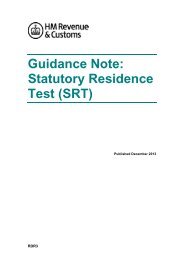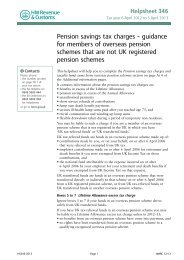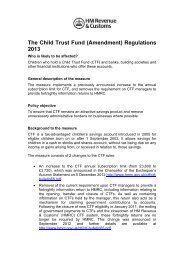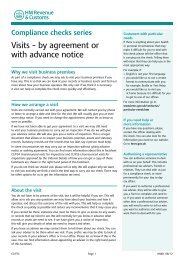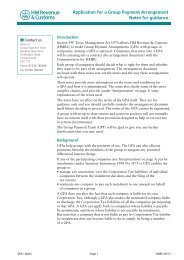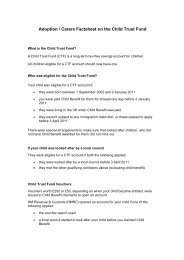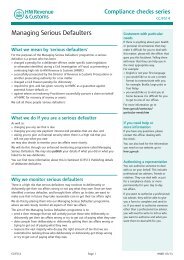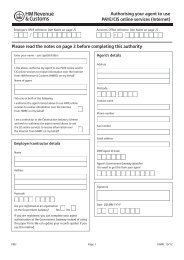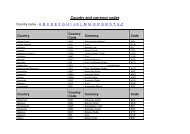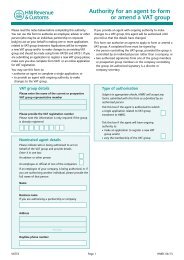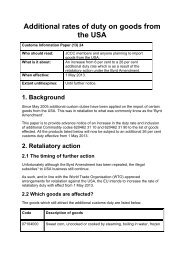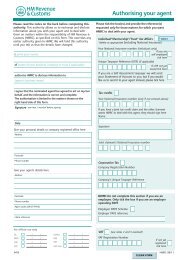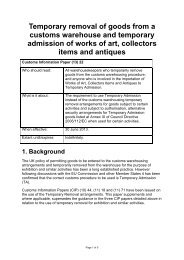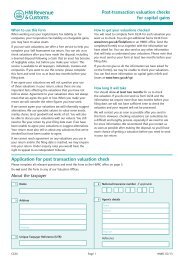cross border vat changes 2010 - HM Revenue & Customs
cross border vat changes 2010 - HM Revenue & Customs
cross border vat changes 2010 - HM Revenue & Customs
You also want an ePaper? Increase the reach of your titles
YUMPU automatically turns print PDFs into web optimized ePapers that Google loves.
usiness status. If the customer is not VAT registered then alternative<br />
evidence may be used. This could be in the form of letters from their tax<br />
authority or Chambers of Commerce.<br />
If you have regular customers but do not yet have their VAT number, you<br />
might want to start collecting them now in advance of the <strong>changes</strong>.<br />
3.1.4 What if customers don’t provide evidence that they are in<br />
business?<br />
If your customer cannot provide sufficient evidence to show that they are in<br />
business, or if you have concerns about whether the evidence relates to your<br />
customer, you should treat them as a non-business customer. If the evidence<br />
is subsequently provided then an adjustment should be made.<br />
3.1.5 What if my customer is involved in both business and nonbusiness<br />
activities?<br />
From 1 January <strong>2010</strong>, if your customer is engaged in both business and nonbusiness<br />
activities (for example, a charity or government department) general<br />
rule supplies to that customer will be treated as a B2B supply for the purposes<br />
of the place of supply rules. This means, for example, that general rule<br />
supplies by UK businesses to overseas charities will be outside of the scope<br />
of UK VAT, even if the services relate to the charity's non-business activities,<br />
providing that the charity has some business activities. Similarly, where a UK<br />
charity which is engaged in both business and non-business activities<br />
receives general rule services, it will always be required to account for reverse<br />
charge VAT on those supplies, even if they relate solely to its non-business<br />
activities.<br />
3.1.6 What if supplies are received wholly for a pri<strong>vat</strong>e purpose?<br />
If a supply of services is made to a business customer who will use it wholly<br />
for their own pri<strong>vat</strong>e use or the pri<strong>vat</strong>e use of their staff, then the supply will be<br />
treated as a B2C supply.<br />
For example, a VAT registered builder may send a domestic appliance - that<br />
is not used in his business – away for repair. This would be regarded as<br />
wholly for a pri<strong>vat</strong>e purpose.<br />
A company, charity, or government body cannot act in a pri<strong>vat</strong>e capacity.<br />
3.1.7 How are the establishment rules changing?<br />
There are no <strong>changes</strong> to the approach for determining where a company is<br />
established or whether there is a fixed establishment. This is covered in VAT<br />
Notice 741 Section 3.<br />
3.1.8 How should I determine which establishment is receiving a<br />
service?


